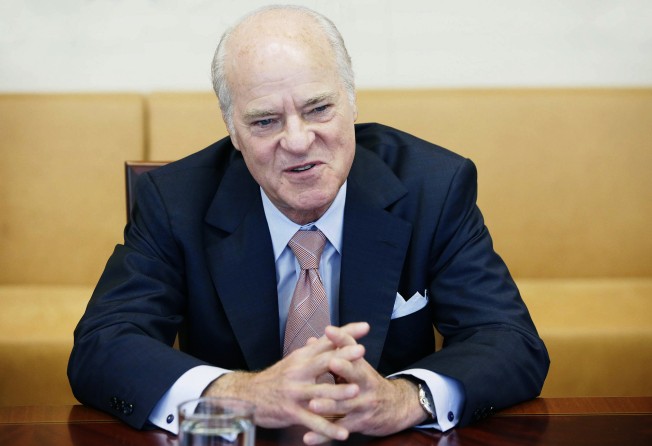Private equity firm KKR to invest in mainland China property market

KKR, one of the world’s largest private equity firms, is looking to make property investments on the mainland despite concern, even inside the government, about whether the red-hot real estate market is turning into a bubble.
Henry Kravis, one of the three co-founders of KKR, said in Hong Kong yesterday that the firm would be happy to make minority investments rather than buy out companies in the world’s fastest growing economic region. KKR, formerly known as Kohlberg Kravis Roberts, recently launched a US$6 billion private equity fund for deals in Asia, its second Asia-dedicated fund.
“Years ago, when we walked in and saw the CEO of a company, the first question we typically would ask is if the company was for sale. If the answer was no, we wouldn’t have a lot to talk about,” said Kravis, whose firm was made famous by the best-selling business book Barbarians at the Gate,about the 1988 leveraged buyout of RJR Nabisco.
“But today, it is more about what the management of any particular company wants and how we can be helpful to them,” said Kravis, who co-founded KKR in 1976 with his cousin George Roberts and Jerome Kohlberg Jnr. “Most of our investments today in Asia are minority investments. We’re perfectly comfortable with that.”
Joe Bae, managing partner for KKR in Asia, said it would go after sectors in which the government saw a strong need for improvement; for example, on the mainland, businesses related to food safety and water treatment.
It is also keen on property deals, and some of its long-time competitors, including two US firms, Carlyle and Blackstone, have snapped up property on the mainland recently – high-end commercial real estate in Shanghai, in the case of those two firms.
When Bae was asked if he might be concerned about industry risk in the mainland’s property sector, where some analysts have warned of sharp price falls in coming years, he said: “Obviously, the real estate market has been a lot stronger than people expected in terms of volume growth and even price. But you can’t generalise about China’s property business.
“Real estate in China is by nature a very local business, so I think you really need to have very targeted bets: in which city, what [type] of real estate – residential, commercial or retail.”
Bae said the exit from the property market globally by some traditional real estate holders, including many major banks, since the 2008 financial crisis had created opportunities for private equity funds to put money into the sector.
Kravis said he did not like people to think of KKR as a capital provider. His vision was to make the firm a “solution provider”.
“Today we can almost accomplish everything that a company needs and that’s the way we want to be positioned,” he said.
“The key to all of that is who is our partner, who is the management of a particular company, people we feel we can trust and do business with. If their companies are reasonable companies, then we will be very happy to be in a minority position to work with them.
“The question I personally always like to ask a management is, ‘What do you want, and what do you expect from us?’ If it is just to provide the capital, we may not be the right partner.”
While China and India remained the hottest destinations for investment, Kravis said Japanese firms, known for their bureaucracy, had become more receptive to investment ideas.